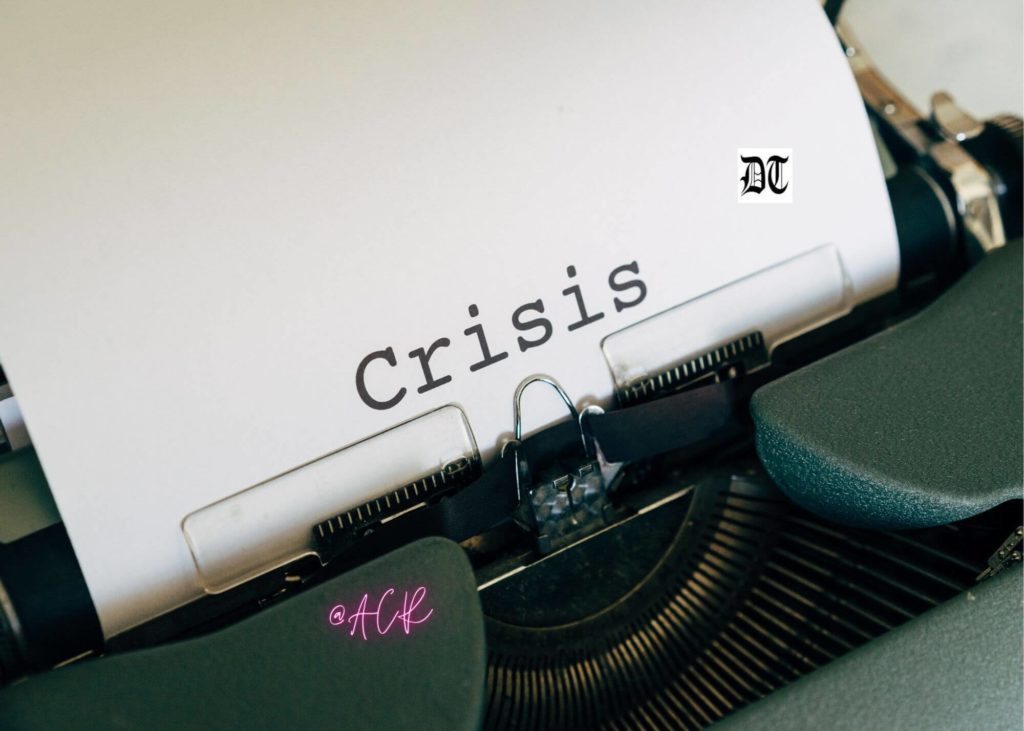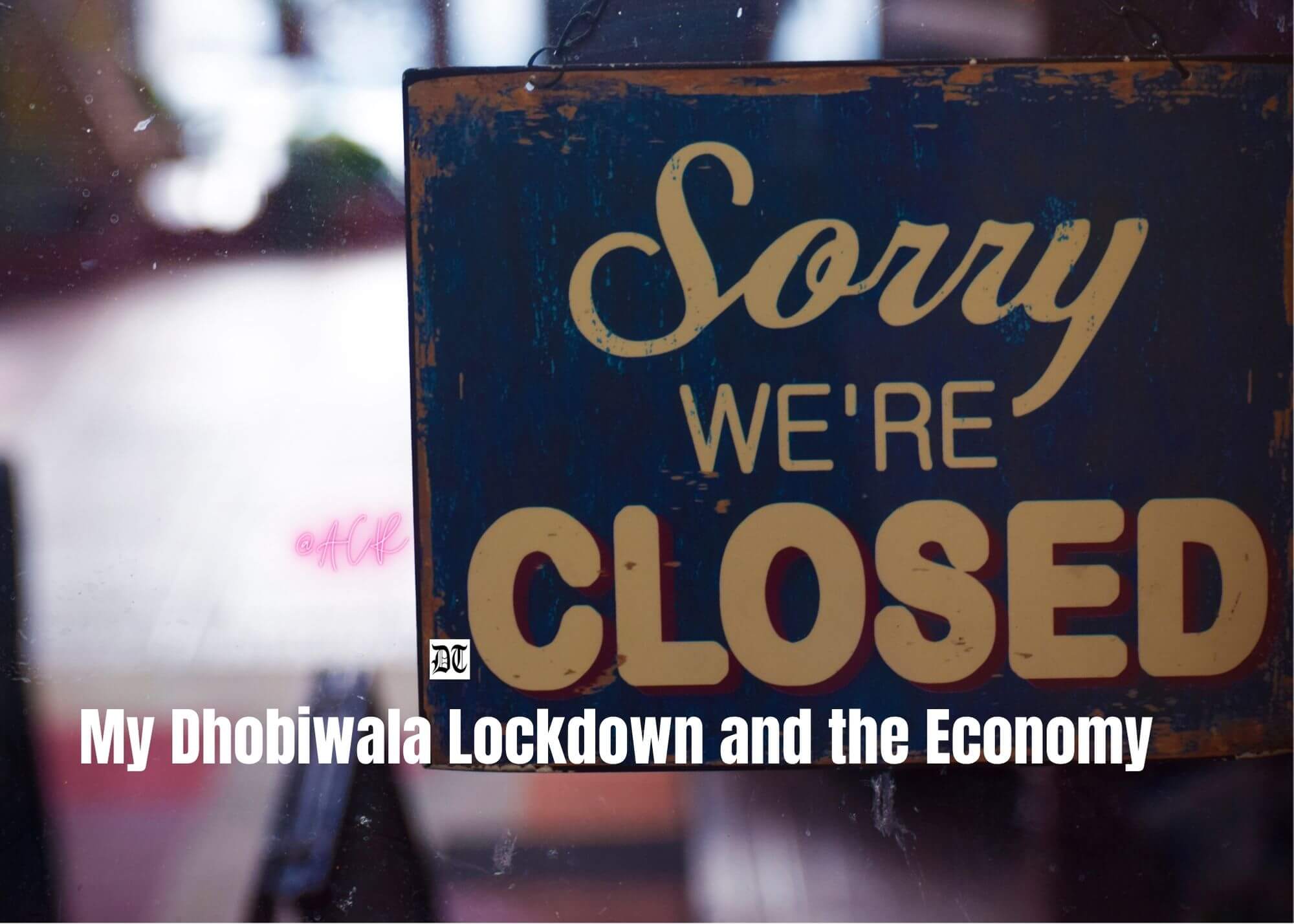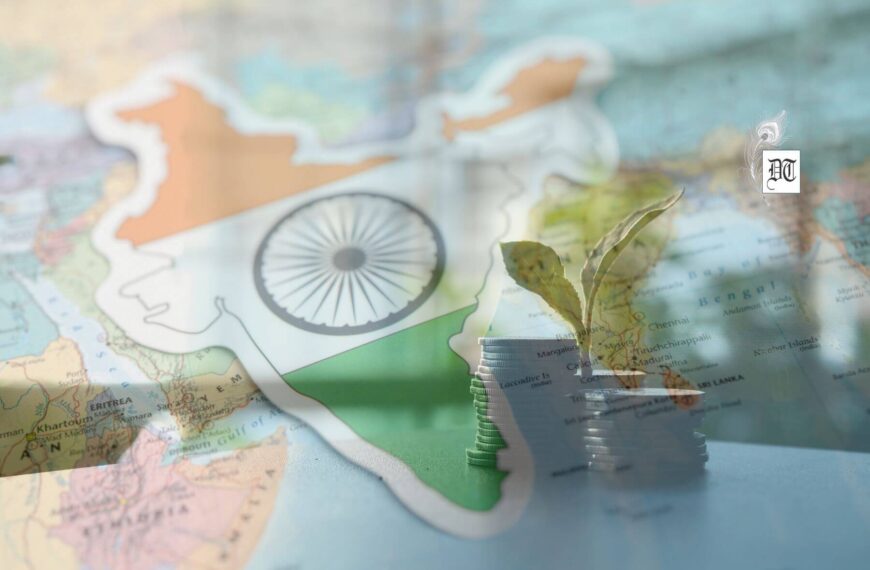The prolonged lockdown after demonetisation was perhaps not a good step. It hurt livelihoods of the unorganised sector, like Dhobi, etc., other than hurting the MSME sector, in India. Shyamal takes a hard look and critiques the situation. An exclusive for Different Truths.
In the morning, my doorbell rang – after opening the doors I found my Dhobi standing outside after months of absence. In fact, like me most of his elderly customers did not venture outside since the pandemic, hence hardly needed ironed clothes to wear for outside engagements. Casually, I enquired whether he had opened his laundry, as usual. Sadly, he reacted that very few of his customers were left for his laundry services.
Now, since a restricted lockdown was imposed after sundown, he managed to knock at select customers’ doors, otherwise, how was he to feed his family! I preferred not to say a word but handed over a couple of clothes, sensing his plight.
He is not the lone sufferer because of the prevailing Covid scare but at every stratum of the society, livings and livelihood is collapsing fast.
He is not the lone sufferer because of the prevailing Covid scare but at every stratum of the society, livings and livelihood is collapsing fast.
There is no denying the halfhearted preparedness to the pandemic with misleading and quackery policy spread in the beginning, compared to the rapid improvisation of healthcare facilities and research. Finally, we woke up after a long slumber of lockdown but lost enough time and manpower, which might have been utilised to improve infrastructure for healthcare. By then demonetisation, followed by Pandemic, crippled employment, investment, output, and market system for the entire economy. Lockdown is never a solution that is accepted worldwide by all who are concerned.
Now, when testing facilities and vaccinations are adequately available, both the protocol needs to be expanded and utilised unrestrictedly to reach out to every household.
Now, when testing facilities and vaccinations are adequately available, both the protocol needs to be expanded and utilised unrestrictedly to reach out to every household. The elderly may recollect how in the 50s and 60s, yearly vaccination drives used to reach every house and locality. Our country successfully eradicated many epidemic diseases, without any lockdown call, locally or nationally. No doubt the increase in population and non-adherence of safety measures have become deterrents but literacy, affluence supported by advancement in science, medicine and healthcare are privileges awaiting rational will to combat adversaries. Delayed response or all-closed method would obviously be abortive in the final outcome.

History suggests the best of human faculty comes out post-crisis and it suggests offering enough ways out to all who matter but one who knows to seize, wins. Post the Great Depression in the 30s, Prof. Keynes realised the shortcomings in the prevailing Classical Theory of economics for failing to explain and avert a depression in anticipation of self-correction. Prof. Keynes in his path-breaking General Theory insisted on the creation of effective demand and increased state participation to stabilise the economy. During expanding recession in the USA spreading to the UK, Europe, and worldwide, inflationary pressure made emergence to a new school of thought from the Chicago school of economics promoted by Prof. Friedman. The focal point of Friedmanian prescription has been liberalising the economy from government intervention and market forces to determine and bring about stabilisation. Popularly, known as the Neoliberal economic doctrine or market economy, it now has become the adopted messiah globally, as the world is becoming one market. Successive world trade conferences initiated the removal of tariffs, restrictions, or sanctions to facilitate free trade among countries.
With ills from demonetisation soon followed by pandemic lockdown, our country has been witnessing an unforeseen socio-economic crisis of recession, unemployment, price rise…
With ills from demonetisation soon followed by pandemic lockdown, our country has been witnessing an unforeseen socio-economic crisis of recession, unemployment, price rise, and curtailment of the State’s social initiatives, forcing negative movement of the economy. The fact has been corroborated by both the officials and non-official sources. Since introducing liberal market policy by the Narasimha Rao government and because of improved macroeconomic policy from RBI, our economy averted the Worldwide Recession, in 2008. Ours has been among a handful of countries professing a rising economy. Hence, the scenario of lockdown has become ushered for an economic collapse, slowly. We, for sure, do not know if the eminent Canadian author, Naomi Klein’s predicts that Neoliberal authority uses crisis to impose harsh unpopular policies when the public focus is manipulated through several agencies and media.
Fortunately, our democratic fundamentals and values are capable of withstanding crises and the public is seized of the situations. No doubt the pandemic has shown many fallacies in the Neoliberal market economy – while the economy, as per the official survey, expected for V-shaped recovery from rock bottom in 2020; more than four million migrants lost livelihood; the entire MSME sector is dying. All essential items prices are soaring, welfare policies have been slashed, education – virtual classes are held but fees recovered in full, healthcare budget’s not hiked but the list of Indian billionaires added by seventeen during this period.
The state of affairs in the USA, under the champion of the liberal economy of the Trump administration, has revived the idea of state participation and the pandemic has necessitated the concept of welfare state policies, away from the market economy, but not necessarily Marxian. Lockdown may be a shortcut passage but would become the Achilles’ heel of the revival process for the economy.
Visual by Different Truths





 By
By

 By
By
 By
By
Human error of judgement to initiate demonetization followed by pandemic catastrophe resulting prolonged phasesin lockdown crippled our economy.Neo liberalism offers no solution as state forced to intervene.